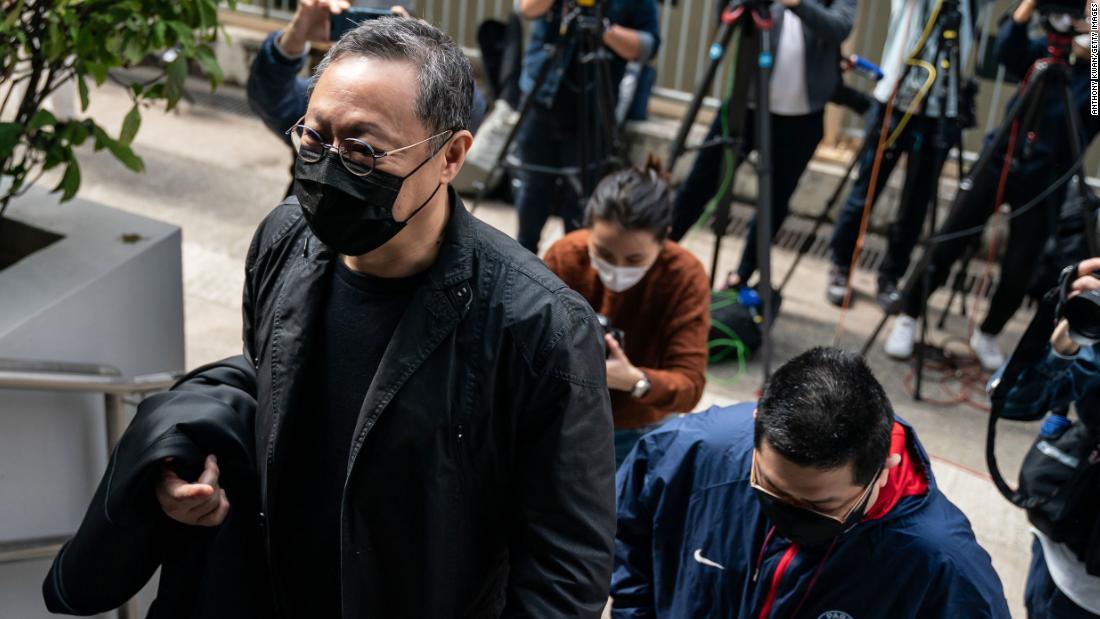If found guilty of “conspiracy to commit subversion”, they could face the maximum sentence of life imprisonment.
The accused were among 53 people – many prominent ex-legislators, activists and district councilors – who were arrested last month for organizing, planning and participating in a primary election for the city’s democratic opposition last July.
This event was designed to identify the strongest pro-democracy candidates to run for legislative council elections planned for last September, when the opposition camp hoped to gain a historic majority.
However, these elections were eventually postponed due to the coronavirus pandemic, but not before several candidates for democracy were disqualified – and warnings made that those attending the primaries could be violating the security law by the age of weeks.
The 39 men and eight women accused on Sunday, aged between 23 and 64, are being detained and will appear at the West Kowloon Magistrates’ Court on Monday. According to their original bail agreements, they were not required to contact the police until early April. But earlier this week, the group was asked to report to the police on Sunday.
The charges on Sunday mark an escalation in the application of the national security law, under which previously only a handful of people had been charged and brought to court.
The law criminalizes secession, subversion, terrorism and collusion with foreign powers, and cases under the law can be dealt with by a dedicated branch of the Hong Kong police and national security courts.
Hong Kong Chief Executive Carrie Lam and others had previously promised that the law would be limited in force and would target only a small number of marginal activists.
Anyone who fails to take the oath – or is found to be false to do so – will be immediately disqualified from office and banned from running for election in the next five years, said Erick Tsang, secretary for Constitutional and Interior Affairs of China.
It came after Hong Kong’s sole delegate to China’s top legislative body said that only “staunch patriots” should be allowed to hold positions of authority in Hong Kong.
Why punish a primary election?
Primary elections are a normal function in democracies around the world. At the time of the Hong Kong vote, the United States Democratic primaries, which Biden won, were still in progress. Hong Kong’s pro-democracy activists have had such votes in the past, in an attempt to equalize the organization and discipline of the rival pro-Beijing camp and avoid fragmentation of support.
The Hong Kong security secretary, however, accused those who organized the July primaries of trying to “paralyze the Hong Kong government” by winning a majority in the legislature to veto bills.
Voting against the budget and forcing the chief executive to step down would have been legal before national security law, similar to a “vote of censure” that leads to a general election in many democracies. The city constitution also contains provisions to deal with such an event, allowing the chief executive to call new legislative elections and approve a preliminary budget to allow the government to continue to function.
When dozens of former lawmakers and opposition activists were arrested in January, Anthony Blinken, now the US Secretary of State, said that “the widespread arrests of pro-democracy protesters are an attack on those who bravely defend universal rights”.
“The Biden-Harris government will be on the side of the people of Hong Kong and against Beijing’s crackdown on democracy,” added Blinken.
UK Foreign Minister Dominic Raab warned in January that the British government “will not look the other way when the rights and autonomy of the people of Hong Kong are destroyed”.
“When China first imposed national security legislation, they said it was to bring some stability to Hong Kong. What is clear from these actions is that it was actually designed to crush political dissent,” Raab told the CNN during an interview in London.
